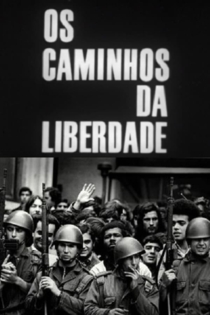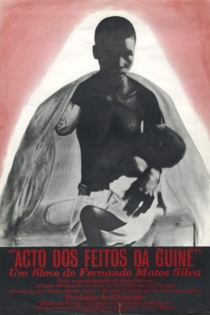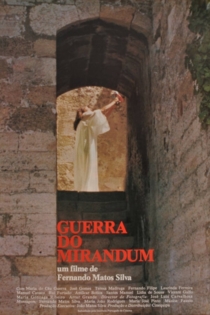
Fernando Matos Silva
1940 (85 лет)As Armas e o Povo
Glauber Rocha, Fernando Lopes
Glauber Rocha, Adelino Gomes
Film directors with hand-held cameras went to the streets of Lisbon from April 25 to May 1, 1974, registering interviews and political events of the Portuguese "Carnations Revolution", as that period would be later known.
As Armas e o Povo
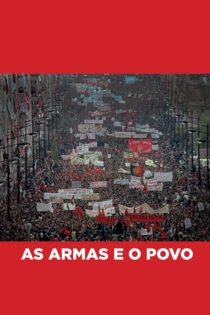
Fantasmas do Império
Ariel de Bigault
João Botelho, Margarida Cardoso
Ariel de Bigault's work has been connected to the routes of the Lusophone World. In Fantasmas do Império we are guided by the saotomean actor Angelo Torres through some works of the Portuguese cinema that explored its colonial past. Some directors as Fernando Matos Silva, João Botelho or Margarida Cardoso help to understand imperialism, colonialism, and propaganda seen through the "family album" which is the Portuguese cinematic collective imaginary.
Fantasmas do Império
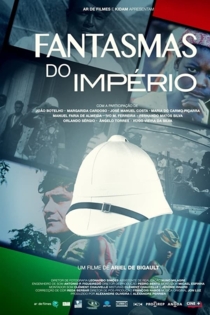
Os Cravos e a Rocha
Luísa Sequeira
Glauber Rocha, Joel Pizzini
On April 25, 1974 the iconoclastic Brazilian filmmaker Glauber Rocha was in Portugal. There, he joined the collective collective film "As Armas e o Povo". With his foreign and peculiar look, he broke the rules of conventional filmmaking.
Os Cravos e a Rocha

O Rapaz do Trapézio Voador
Fernando Matos Silva
José Airosa, Micaela Cardoso
One bad thing never comes alone, says the people. The village Estrela is threatened by the waters of the new Alqueva dam. It will become an "island". But, as one bad thing never comes alone, the daily lives of the inhabitants of this small mountain village are changed by the death of Adriano. "In order to create, I destroyed myself; I have so much externalized within myself that within me I exist only outwardly. I am the living scene where various actors perform various plays." (from Livro do Desassossego by Fernando Pessoa), as Adriano liked to quote Adriano. He committed suicide on the day of the village feast, hanging himself in the main square. For Adriano, the main square of the village has long been the center of the world. Adriano felt surrounded, depressed, unable to escape his destiny. "No one can stop a man who travels with suicide on his lapel" Adriano repeated to Lisete, always to the point of exhaustion.
O Rapaz do Trapézio Voador
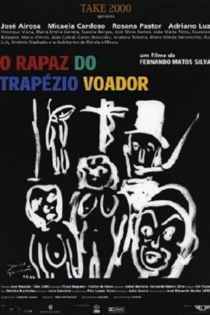
O Mal-Amado
Fernando Matos Silva
João Mota, Maria do Céu Guerra
The Soares are a bourgeois couple, living in a good neighbourhood of Lisbon, but João, their son, is not integrating well in that pattern. He attends more political meetings than classes at the Faculty of Economy, and gets a job but that's short lived because his female boss makes him her lover. He longs for the coffee shops, and the companions of old, but he doesn't get true love from anyone.
O Mal-Amado
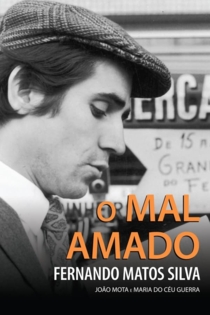
Ao Sul
Fernando Matos Silva
Jorge Baião, Márcia Breia
Twenty years ago, Henrique left Portugal for the peaceful Netherlands. A colonial war veteran, he desperately wanted to get away from his country which still defended a doomed African empire and from his traditional, landowning family. He’s back now. Everything is different. «Europe» knocked on the door and sprawled itself fast. Even the South had to face wrenching changes. And Henrique himself will have to face many events. Love affairs and dangerous threats. And the chalenge of his future.
Ao Sul
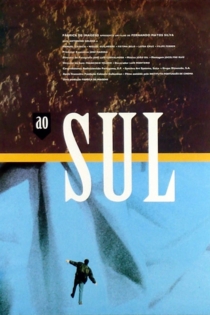
O Meu Nome É...
Fernando Matos Silva
Rui Mendes, Francisco Manso
The daily experiences of many antifascists - who suffered, until the political prison, which sealed his esteem and united them in a covenant of justice against a "pide" assassin (eted). But the April 25 and May 1, to September 28 and March 11, follows the November 25 - striking dates a forthcoming story. Time caused the wear of the revolutionary process, exacerbating social and economic problems. In the intellectual groups of the left, where the ideological coherence flew over the everyday practice, is dug a crisis of identity and options. An early vote, perhaps radical, unites -still - a determined activist and a journalist who wonders ...
O Meu Nome É...
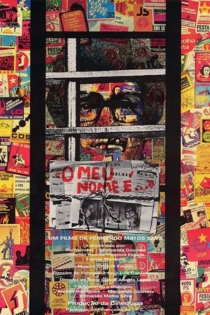
O Meu Avô Republicano
Fernando Matos Silva
António Machado
There is a photograph from 1937, the year of my parents wedding, taken at Sta. Isabel’s Church. In it, my grandfather José Rodrigues Vieira has a sad pose. He married his daughter and was politically dismissed by the State. He is an old republican, tormented and disappointed. Born in the village of Almeida he was at the Rotunda and at the proclamation of the Republic. The film «O Meu Avô Republicano», through its locations, images, photographs, films, press and propaganda draws the outlines of that time and the republican movement in which he was involved.
O Meu Avô Republicano

Cochim - A Porta do Oriente
Fernando Matos Silva
A documentary organized around the promotion of Indo-Portuguese cultural heritage, with commented pictures of the most striking examples of civil and religious architecture and housing areas marked by portuguese traditional construction. Patent portuguese memory in everyday's commercial and artistic life of Cochin, now the capital of Kerala state and surrounding regions of Cranganor, Calicut, Quilon and Travancore. The undisputed and recognized influence of Indo-Portuguese Catholic communities across the region.
Cochin

